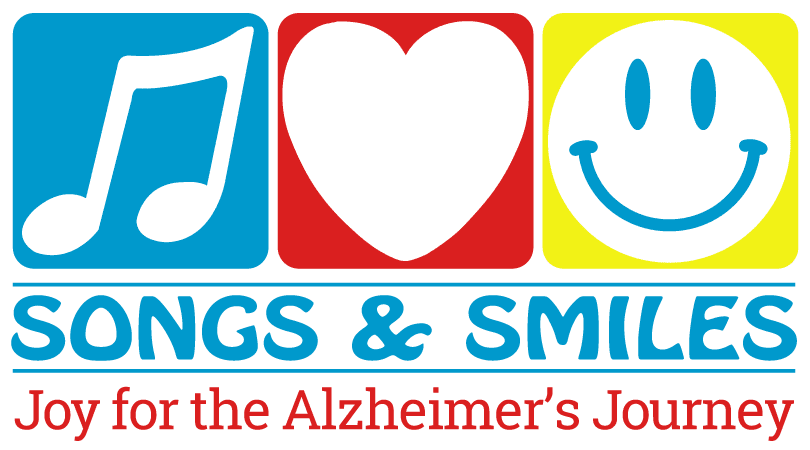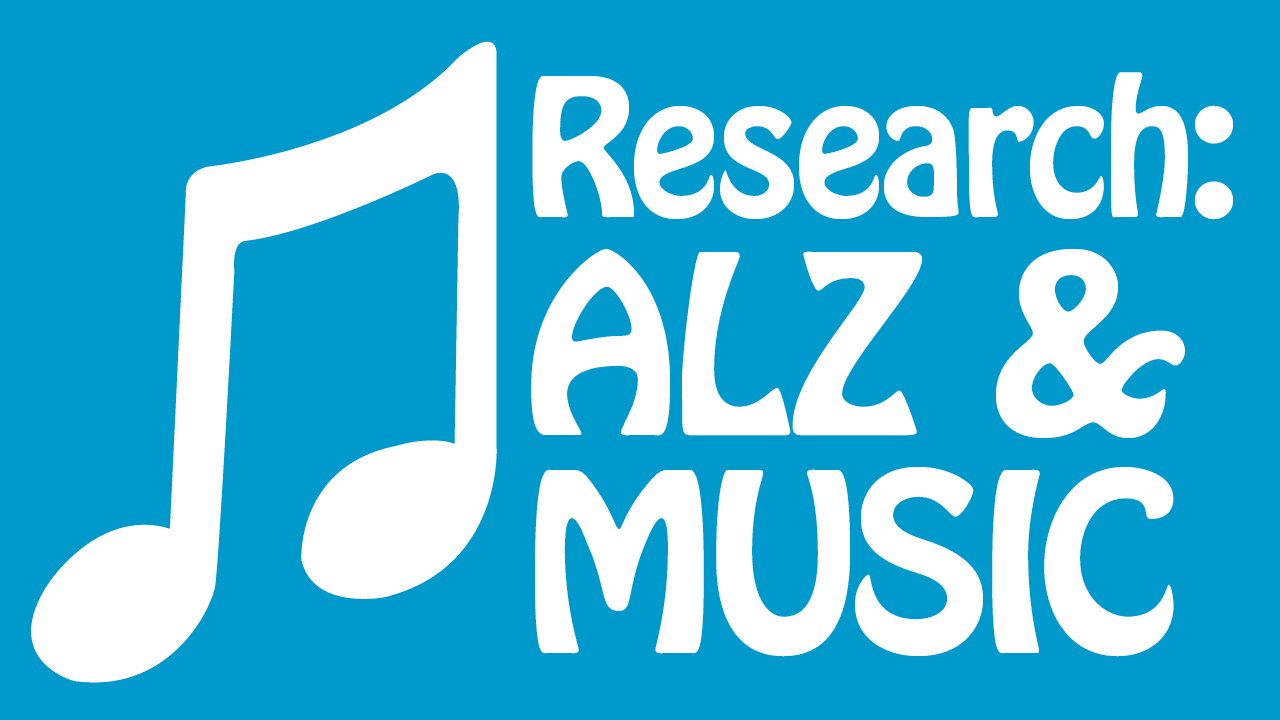We appreciate all of the talented and hard-working people who have provided a growing amount of research about music and Alzheimer’s. Based on our own experience, we believe music has a “magical” way of reaching and helping people who have Alzheimer’s or other types of dementia. That’s why we lead singalongs. But it’s good to know our belief is supported by so much science.
Here, a sampling of case studies and research about music and Alzheimer’s or other types of dementia:
Music Elicits Emotions
Brief exposure to music was shown to induce strong and lingering emotions in people who have Alzheimer’s, even when those people could not remember hearing the songs.
Citation: Reschke-Hernández, Alaine E. et al. ‘Hooked on a Feeling: Influence of Brief Exposure to Familiar Music on Feelings of Emotion in Individuals with Alzheimer’s Disease’. 1 Jan. 2020 : 1019 – 1031. https://content.iospress.com/articles/journal-of-alzheimers-disease/jad200889
Singalongs Reduce Anxiety and Depression
Residents at care homes who participated in an “old time sing-a-long” were found to have significantly reduced levels of anxiety and depression, compared with residents who did not participate.
Citation: (1998) Using humour to promote psychological wellbeing in residential homes for older people, Aging & Mental Health, 2:4, 328-332, DOI: https://doi.org/10.1080/13607869856588
Music as Part of Dementia Care Improves Mood and Quality of Life
People caring for people with dementia were coached to include singing and music listening as part of everyday care. Compared with usual care, singing and music listening improved mood and quality of life for both the person living with dementia and their caregivers.
Citation: Teppo Särkämö, PhD, MA, Mari Tervaniemi, PhD, MA, Sari Laitinen, LicPhil, Ava Numminen, PhD, MA, Merja Kurki, PhD, MA, Julene K. Johnson, PhD,, Pekka Rantanen, PhD, MD, Cognitive, Emotional, and Social Benefits of Regular Musical Activities in Early Dementia: Randomized Controlled Study, The Gerontologist, Volume 54, Issue 4, August 2014, Pages 634–650, https://doi.org/10.1093/geront/gnt100
Music Increases Alertness, Happiness, and Recall of Personal Histories
People living with Alzheimer’s were divided into three groups, with each group engaging in different activities during a daily recreation time over a period of six months. One group did puzzle activities, and another group engaged in drawing and painting. But people in the third group, who listened to “Big Band” music from the 1920s and 1930s, were shown to be more alert, happier, and had higher recall of past personal history than those in the other two groups.
Citation: Lord TR, Garner JE. Effects of music on Alzheimer patients. Percept Mot Skills. 1993 Apr;76(2):451-5. https://journals.sagepub.com/doi/10.2466/pms.1993.76.2.451
Dr. Oliver Sacks on Music and Alzheimer’s
More Information About Music and Alzheimer’s
On the Alzheimer’s.net website, read: 5 Reasons Why Music Boosts Brain Activity
On the Being Patient website, read: Music and Alzheimer’s: Music Therapy Impacts Both Alzheimer’s Patients and Caregivers
On the Everyday Health website, read: The Power of Music Therapy for Alzheimer’s and Dementia Care
On the Mayo Clinic website, Dr. Jonathan Graff-Radford answers the question: Can music help someone with Alzheimer’s?
On the Music for Dementia UK website, see How Music Helps and the Facts About Music and Dementia infographic.
Resources for General Research About Alzheimer’s
- Alzheimer’s Association Research
- Alzheimer’s Research Foundation
- Being Patient’s Guide to Music in Dementia Care
- BrightFocus Foundation Alzheimer’s Disease Research Program
- Center for BrainHealth at UT Dallas
- Journal of Alzheimer’s Disease
- Mayo Clinic Alzheimer’s Disease Research Center
- Peter O’Donnell Jr. Brain Institute at UT Southwestern Medical Center


Check out the American Music Therapy Association (www.musictherapy.org) for more information on music and Alzheimer’s. Great resources all across the US
Yes, and lots of great research, too. Check out https://www.musictherapy.org/research/factsheets/ for fact sheets, including one about music and Alzheimer’s.